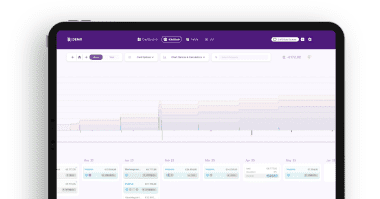AI has been the buzzword since 2023 kicked into gear. Unlike the excitement surrounding the metaverse and decentralized finance last year, both of which have yet to show any sign of materializing, artificial intelligence has been an integral part of enterprises for quite some time. While AI’s capability holds the potential to upend any sector, machine learning is already reshaping the finance industry.

Analyzing database
Among its attributes, AI can consume a large amount of data to a humanly impossible degree, which in turn feeds into its processing prowess. For example, consider mortgage lenders whose job is to underwrite mortgage loans. Instead of having individual loan processors spend hours on qualifying one single applicant, AI can simultaneously scan through the entire customer database. It parses customers’ incomes, credit scores, debt-to-income ratios, payment histories, etc before approving a loan. And as the machine become more effective, AI will significantly reduce the lead time for the process.
Artificial customer service
If you have ever experienced a long wait time when calling a banker or specialist, you know how irritating those incidents are. With the adoption of AI, customers can expect to be accommodated 24/7. Because AI is becoming more proficient in processing natural language, it can converse with customers in a way that a human representative can. An example of this would be the text-based artificial assistant offered by Capital One, called ENO. ENO can assist customers with financial inquiries, as well as alert them about abnormal activities on their accounts.
Enhancing security
Speaking of abnormal activities, fraud prevention has been a strong suit of artificial intelligence. Since the dawn of everything-is-online, companies have increasingly faced the threat of cyberattacks, financial frauds, and identity thefts. A generative AI, like the newest sensation ChatGPT, is capable of writing codes based on prompts provided by programmers. Though its work still leaves much to be desired, machines will soon have a reliable capability to pinpoint any weak link in security systems and suggest potential remedies.
Your AI financial assistant
Finally, it is not inconceivable to envision a future where your personal financial advisor will be an incorporeal digital helper. While that might seem like a far-off possibility, financial institutions already deploy AI to make important investing decisions. Prominent market participants like hedge funds execute most of their trading by using algorithm, since AI can process an incredible repository of market data. In addition, industry startups are developing bots that can analyze your spending behaviors to give personal financial advice accordingly. This, as a result, might remove the need to have a human advisor, since you already possess an artificial assistant in your pocket phone.
Overall, AI’s ability to process and analyze vast amounts of data has led to significant changes in the finance industry. From faster loan approvals to 24/7 customer service and enhanced security, AI has already proven its worth in the financial sector. As AI technology continues to evolve and improve, this is only the beginning of AI’s potential to reshape and revolutionize various sectors in ways that we can’t even imagine yet.


